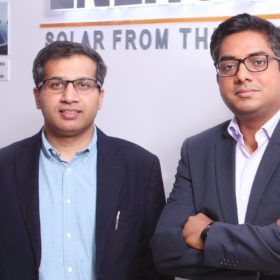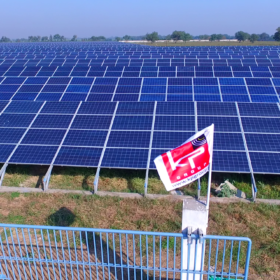IIPA signs MoU with ISA for capacity building of member countries
The institute’s Centre of Environment and Climate Change will impart necessary training to the officials of the member countries of solar alliance in formulating their policies and programmes to generate solar energy.
Adani launches new solar and iron ore mining arms
Mundra Solar Energy will undertake installation and commissioning of solar projects. Kurmitar Iron Ore Mining, on the other hand, will carry out mining activities in the state of Chhattisgarh.
Bangladeshi developer accuses India of dumping poor quality panels over the border
Visitors to this year’s Solar Bangladesh Expo have called for the implementation of quality standards on solar imports – action which the government is currently pursuing – with one industry insider rubbishing Indian-made products.
White paper sums up e-transport policy progress across India
Range anxiety continues to be an obstacle to electric vehicle take-up but the nation’s willingness to embrace car-sharing and other workarounds offers plenty of promise to the sector, according a World Economic Forum report.
Interview: SunSource Energy says regulatory uncertainty is solar industry’s biggest challenge
The disparity between central and state government renewables policies must be resolved and renegotiating signed PPAs is an absolute no-no, according to the solar business’ bosses.
Andhra Pradesh regulator approves solar power tariffs
The latest blow in the political battle between clean energy project developers and an anti-renewables state government has seen the electricity regulator order power distribution companies to honor PPAs signed after a public tender.
ICRA downgrades 1.9 GW of wind, solar projects amid headwinds
Continuing delays in payments from utilities, regulatory uncertainty on tariff matters and tight financing have hit the industry hard.
Captive solar plants, a lucrative proposition for growing MSMEs
By going for captive solar plants, MSMEs can not only contribute in addressing the challenge of global warming but also generate additional cash flows to their business. Ample funding is available for them to make the switch.
Ministry issues bidding guidelines for solar-wind hybrid projects
The Ministry of New and Renewable Energy has suggested minimum 25-year power purchase agreements and also opened up the option of including energy storage in solar-wind hybrid generation projects procured under its public tender regime.
MNRE refutes CRISIL report casting doubt on achievement of ‘175 GW by 2022’ target
“The CRISIL report is neither factually correct nor takes into account initiatives taken by the MNRE to facilitate accelerated development and deployment of renewable energy in the country. India will not only meet 175 GW target but exceed it by 2022”—stated the ministry.













